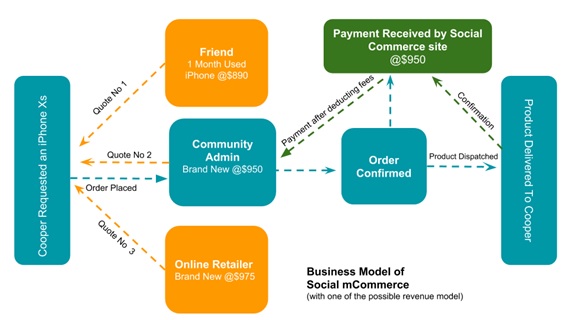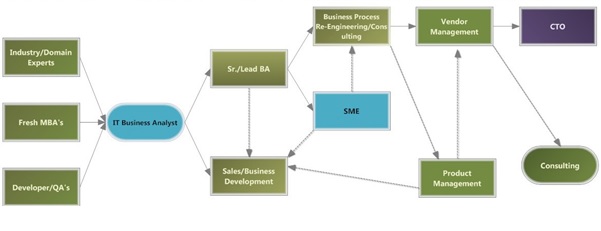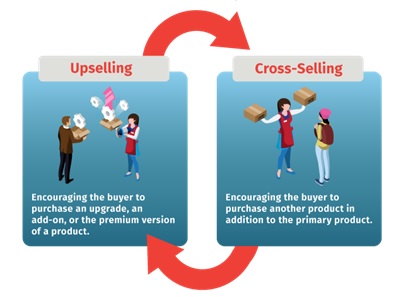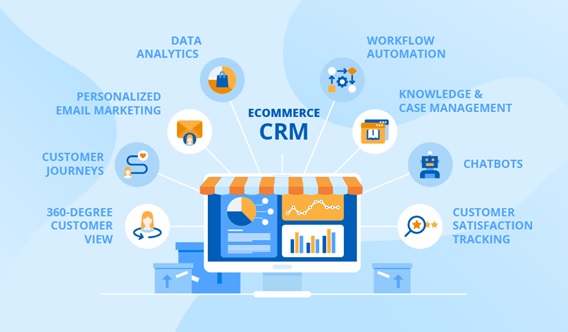Social Commerce – A Subset Of eCommerce
Social commerce is the buying and selling of goods or services directly within a social media platform. This model moves social media beyond its traditional role in the discovery process by encouraging users to complete the entire purchase process without leaving their preferred apps.
Executives overwhelmingly agree that social commerce is driving an increasing portion of their company’s marketing-driven revenue, [1] according to The State of Social Media Investment Report. About eight in 10 expect to be selling their products or services via social within the next three years.
The difference between social commerce and ecommerce
Ecommerce broadly encompasses the process of buying and selling goods online. The model is convenient, but it’s far from perfect. Over 50% of all internet traffic is from mobile devices, and mobile users have a much higher cart abandonment rate than desktop users. As buyers move to the small screen for everyday purchases, streamlining your checkout process is key. Figure 1 shows the Concept of Social Commerce.
This is where social commerce comes into play. [2] It removes the drop-off points that can result in abandoned transactions.

Figure 1. The Concept of Social Commerce
Advantages of Social Commerce
Firstly, in social commerce, it is significant to understand that it is the online retailers doing the selling and not the social media companies. With social commerce, customers can purchase products directly from the retailers without any or minimum need to interact directly with them.
Some of the examples include Instagram- digital price labels, Facebook- Shop Now, and Pinterest- Shop the Look. Recently, [3] Instagram has given their users an option to checkout directly without any need to leave the application. It is expected that there will be a bigger rollout of Instagram features in the future.
Although social commerce is still in its initial stages, there are many companies who are still experimenting to enable selling and buying experience with the best methods through their platforms. For instance, Facebook is testing, executing, and terminating lots of new features.
Only by understanding the customer journey can you personalize your customers’ experience. Omnichannel e-commerce allows you to create a personalized experience. Creating a personalized experience is essential to omnichannel customers as they have a 30% higher lifetime value over shoppers who only purchase using one channel.
Thus, it is hard to find out what exactly the complete social commerce experience will appear for users. As per Research Dive published report, there is a great opportunity for online retailers as the benefits offered by social commerce has propelled the growth of the social commerce market.
The Future of Social Commerce
If Western social platforms want to stop playing catch up with platforms like KakaoTalk and WeChat, big players like Facebook need to start collaborating [4] even more with brands to develop features and experiences that social audiences are ready for but that their audiences haven’t seen before. More partnerships between companies and social apps are needed to explore possibilities at a bigger scale.
And because of the desire to truly connect, and the push for groups by interest, we should watch out for niche social apps that have become important and gained fame like TikTok which counts 500 million monthly active users.
The movement of Social Ecommerce is only just beginning. As Western platforms look to the East and see what those platforms are capable of accomplishing, it’s only a matter of time before all social media figures out a way to work ecommerce strategies into their innerworkings. And when they do so, they’re likely to find that audiences are even more ready for the change than they anticipated.
References:
- https://sproutsocial.com/insights/social-commerce/
- https://www.bigcommerce.com/blog/social-commerce/#examples-of-successful-social-commerce-campaigns
- https://thenextscoop.com/social-commerce-is-important/
- https://www.valtech.com/insights/social-ecommerce/
Cite this article:
Vinotha D (2021), Social Commerce – A Subset of eCommerce, AnaTechMaz, pp. 14















